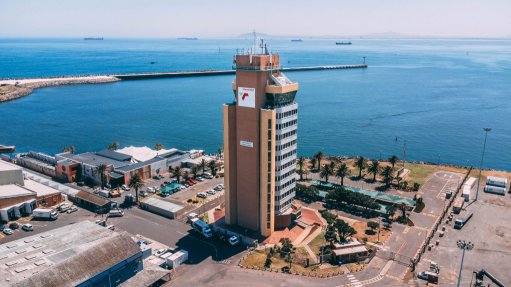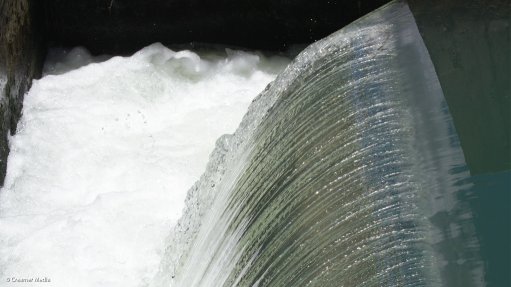The Michael Moore view of the world
Michael Moore’s documentary, Planet of the Humans (a play on the Anthropocene age), following his namesake, Roger Moore, in the James Bond 007 movie, goes after the evil enemy, the Greens, and their obsession with renewables.
Moore is widely regarded as a progressive filmmaker and critic of the rightwing. His documentaries – Bowling for Columbine, Fahrenheit 9/11 and others – have received considerable acclaim for exposing the dark side of American society, in particular, and human society as a whole.
His current movie fails to persuade and rehashes old, staid views about the population bomb and renewables. It was a lazy attempt at investigative journalism, given that he only spoke to one side: those who had a lot of terrible things to say about the Green movement and renewables in general and were supposedly insiders. Perhaps Moore was not interested in nuance or multiple views.
It is no surprise that rightwing news agencies gave him ten out of ten for Planet of the Humans: the documentary is in line with their attitude towards the Green movement and renewables. Fox and Sky News went insane, spewing vitriolic commentary.
It is hard to explain Moore’s mind or the reason for the movie, given the slapdash job he did on it. But let’s examine his take on population growth and civilisation.
Malthusian Arguments Come and Go
The essence of the Malthusian argument is that there is a limit to growth, or that resources are finite and we cannot feed, clothe or give warmth to nine-billion people on the planet. Moore thinks our civilisation is doomed and that we should stop population growth.
The man behind the Malthusian theory, Thomas Robert Malthus, argued that population growth that is exponential tends to impose constraints on the food production system – which itself has to be exponential (but cannot, owing to resources being finite, or the Malthusian trap) – until the natural system can no longer meet demand.
Advances in technology have ensured that the net result is that, on average, production rates are at a higher rate than the population growth rate. But we do have three things – food insecurity, income inequality that affects the quality of food that is consumed and famines (especially in places of conflict) – that have nothing to do with the Malthusian trap and everything to do with the political economy which Moore fails to grapple with.
The Malthusian trap has been proven to be wrong, because of technological developments, the intensification of agriculture and the fact that, as the incomes of citizens grow, they tend to have fewer children.
Once basic needs are met, attention shifts to other needs, as Abraham Maslow’s hierarchy has shown. Economist Simon Kuznet suggested that, as national and individual incomes grow, so too does the demand for cleaner and better environmental neighbourhoods and technology. There are problems with Kuznet’s thesis when it comes to highly unequal societies, but that conversation is for another day. However, in general, his thesis is correct.
The main thing here is that we can sustain the population on the planet for now because we have the technological means to do so, but some countries will be affected more than others if their economies do not grow sustainably and their redistributive mechanisms fail. Besides, complaining about the population bomb is too late now and, in any case, the population growth rate is lower than the global economic growth rate – bar the effects of Covid-19.
It is clear that we can meet our food needs, but perhaps the civilisational point that Moore failed to make in his documentary is that this has come at great cost to the lives of animals and nature. Moore would have done better if he had filed a story about the cruelty of the meat industry rather than the cruelty of renewables.
The morality of meat consumption and its effects on climate change should have had some coverage. Moore seems to suggest in the documentary that our civilisation is filled with hypocrisy and the utopian belief that green technologies will save us. But why should we not try to make things better?
The renewables component of the documentary does require a word or two. Firstly, it is clear the footage is outdated, especially the part about solar panel inefficiencies. Perhaps Moore does not get it: as technologies scale, performance improvements also take place, owing to improved learning rates.
Transitions to alternative energy have to be built within the old for the new to be fully realised. So, some aspects of the old will taint the new, similar to our reliance on baseload capacity, which is fossil fuel based.
It is true that a portion of the production of solar and wind energy requires mining and the use of fossil fuels but, as many studies show, if you consider the full life-cycle costs and carbon footprint of renewables versus coal, renewables still performer better. This is not to dismiss the need for minerals to meet the metal and chemicals needs of renewables.
A recent World Bank study, titled ‘Minerals for Climate Action’, provides a very rigorous appraisal of the demand for the minerals that are essential for the transition to a low-carbon future. It does not paint a bleak picture, as Moore does, provided certain measures are taken soon to make mining more climate smart.
Moore also thinks that, if he takes on the biomass brigade, he will demolish the whole of the renewables edifice. There are many problems with biomass, and even the supposed poster child of biomass solutions, Bill McKibben, whom Moore attacks in the movie, has come out saying it was a mistake the movement made.
Moore may have caused more damage to the climate movement – but I doubt that very much. What he certainly did is to dent his reputation forever.
Article Enquiry
Email Article
Save Article
Feedback
To advertise email advertising@creamermedia.co.za or click here
Announcements
What's On
Subscribe to improve your user experience...
Option 1 (equivalent of R125 a month):
Receive a weekly copy of Creamer Media's Engineering News & Mining Weekly magazine
(print copy for those in South Africa and e-magazine for those outside of South Africa)
Receive daily email newsletters
Access to full search results
Access archive of magazine back copies
Access to Projects in Progress
Access to ONE Research Report of your choice in PDF format
Option 2 (equivalent of R375 a month):
All benefits from Option 1
PLUS
Access to Creamer Media's Research Channel Africa for ALL Research Reports, in PDF format, on various industrial and mining sectors
including Electricity; Water; Energy Transition; Hydrogen; Roads, Rail and Ports; Coal; Gold; Platinum; Battery Metals; etc.
Already a subscriber?
Forgotten your password?
Receive weekly copy of Creamer Media's Engineering News & Mining Weekly magazine (print copy for those in South Africa and e-magazine for those outside of South Africa)
➕
Recieve daily email newsletters
➕
Access to full search results
➕
Access archive of magazine back copies
➕
Access to Projects in Progress
➕
Access to ONE Research Report of your choice in PDF format
RESEARCH CHANNEL AFRICA
R4500 (equivalent of R375 a month)
SUBSCRIBEAll benefits from Option 1
➕
Access to Creamer Media's Research Channel Africa for ALL Research Reports on various industrial and mining sectors, in PDF format, including on:
Electricity
➕
Water
➕
Energy Transition
➕
Hydrogen
➕
Roads, Rail and Ports
➕
Coal
➕
Gold
➕
Platinum
➕
Battery Metals
➕
etc.
Receive all benefits from Option 1 or Option 2 delivered to numerous people at your company
➕
Multiple User names and Passwords for simultaneous log-ins
➕
Intranet integration access to all in your organisation

















